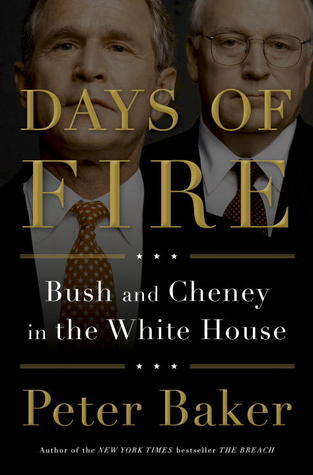What do you think?
Rate this book


Audio CD
First published January 1, 2013
"I want to hang Saakashvili by the balls," Putin told Sarkozy.
"Hang him?" Sarkozy asked.
"Why not? The Americans hanged Saddam Hussein."
"But do you want to end up like Bush?"
"Ah," Putin replied, "there you have a point."
"The president," a senior [Bush] administration official said, "thinks cutting and running on his friends shows weakness. Change shows weakness. Doing what everyone knows has to be done shows weakness."
"You know there are all these conspiracy theories that Dick runs the country . . . or Karl [Rove] runs the country. Why aren't there any conspiracy theories that I run the country? Really ticks me off." - George W. Bush, kidding on the square at the Gridiron Club, March 11, 2006